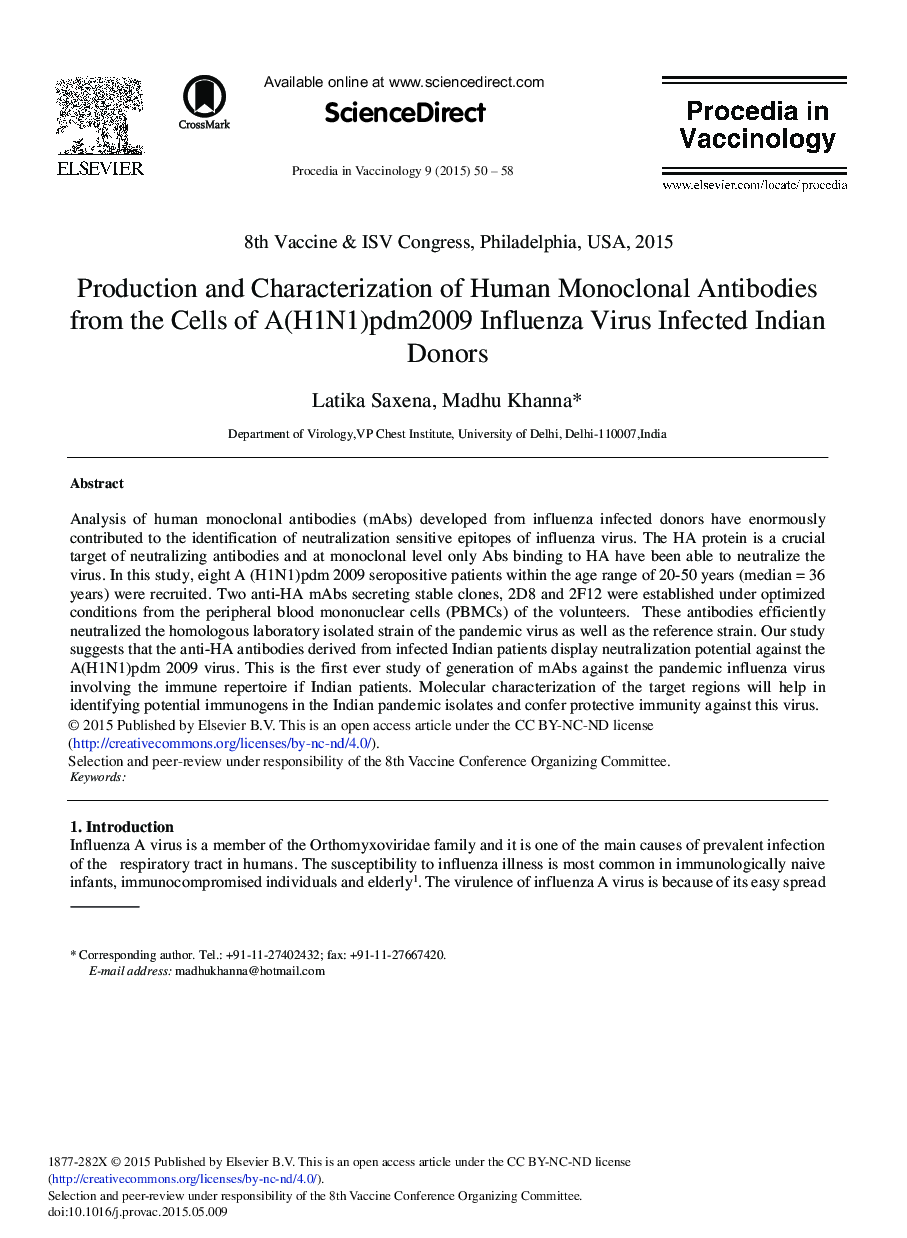| Article ID | Journal | Published Year | Pages | File Type |
|---|---|---|---|---|
| 2473698 | Procedia in Vaccinology | 2015 | 9 Pages |
Analysis of human monoclonal antibodies (mAbs) developed from influenza infected donors have enormously contributed to the identification of neutralization sensitive epitopes of influenza virus. The HA protein is a crucial target of neutralizing antibodies and at monoclonal level only Abs binding to HA have been able to neutralize the virus. In this study, eight A (H1N1)pdm 2009 seropositive patients within the age range of 20-50 years (median = 36 years) were recruited. Two anti-HA mAbs secreting stable clones, 2D8 and 2F12 were established under optimized conditions from the peripheral blood mononuclear cells (PBMCs) of the volunteers. These antibodies efficiently neutralized the homologous laboratory isolated strain of the pandemic virus as well as the reference strain. Our study suggests that the anti-HA antibodies derived from infected Indian patients display neutralization potential against the A(H1N1)pdm 2009 virus. This is the first ever study of generation of mAbs against the pandemic influenza virus involving the immune repertoire if Indian patients. Molecular characterization of the target regions will help in identifying potential immunogens in the Indian pandemic isolates and confer protective immunity against this virus.
